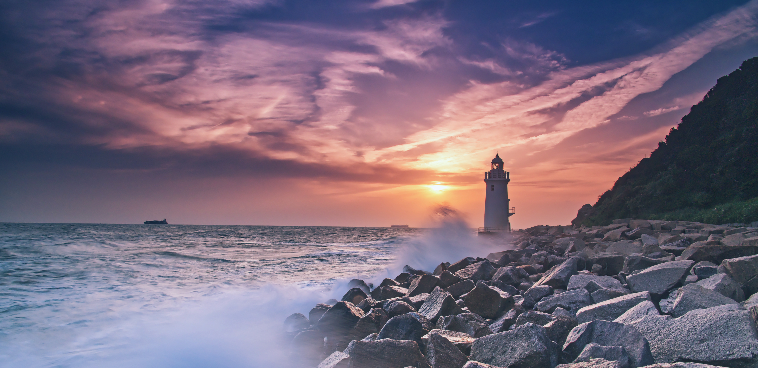Lead Change is a leadership media destination with a unique editorial focus on driving change within organizations, teams, and individuals. Lead Change, a division of Weaving Influence, publishes twice monthly with SmartBrief. Today’s post is by Eileen McDargh.
In 1850, one of the greatest storms in decades marched across England. Five ships were dashed to pieces and all hands lost. An Irish sailing ship bound for America floundered and 96 people drowned.
To the north of England, on the Orkney island of Scotland, the storm howled for two days. The gale, combined with fierce rain and high tides, stripped the grassy covering off an irregular knoll. It had been a landmark for centuries. When the storm abated, islanders emerged to discover that where the knoll had stood were the remains of an ancient stone village. It consisted of nine houses, amazingly intact except for roofs. The village, known as Skara Brae, is older than Stonehenge and the pyramids in Egypt.
Here’s the point: Beneath that disaster, was an incredible find. Surely for centuries, villagers had probably just dumped dirt or refuse — you name it — over the houses. The villagers probably didn’t want to look at the homes.
Today’s convergence of a global pandemic, economic turmoil and social upheaval are much like the storm of 1850. These events have stripped away what we’ve probably ignored and buried for too long: legacy ways of conducting business, outmoded systems and processes, ignored injustices, ponderous layers of required forms, health care codes and bloated bureaucratic governments.
The good news is that now is the perfect time to build one of the strongest resiliency traits: intelligent optimism. This is not about a “new normal,” but rather creating the types of enterprises, communities, and work environments that we want.
It’s about leaders being bold enough to look at what “is” and help others discover possibilities that are bold, fresh, and life-giving versus energy draining.
Here are the leader’s questions for herself and others:
- What has become clear to you in the last few months?
- Where are you spending energy without getting the desired results?
- If you could start from scratch, how would you redesign your job, this business?
- What have you uncovered about your personal life that needs to be encouraged?
- How can we grow together as a supportive unit and what do you need from me?
- What are the small steps you can create to work in a more collaborative way?
In order to sincerely ask these questions, a leader will need to:
- Listen without judgment or push back.
- Ask reflective questions that mirror back what is heard from employees.
- Be patient. Just as archeology is a slow exploration, exploring and discovering opportunities might take time.
Lastly, times like these remind us of the fragility of life. People want to feel their life and work have meaning. After 9/11, I spoke with individuals who decided that they needed to find a deeper why and move into work that helped them reclaim what matters.
For example, Milton Glaser died in June at age 91. Until his final days, the graphic designer behind the iconic “I ♥ NY” logo was still thinking about how his work could help his city in the grips of pandemic and social upheaval. I think his words in a New York Times interview serve as a guiding point:
“I don’t think there’s any way of telling what’s going to happen. I know this [pandemic] is a cosmic change and that nothing will ever be the same again. But I do know that if there’s a collective consciousness, if we realize we are all related and we need one another, that would be the best thing that could happen.
It’s something to think about.
Eileen McDargh is the CEO of The Resiliency Group. She is an internationally recognized keynote speaker, master facilitator and award-winning author with expertise in resiliency and leadership. The British research firm of Global Gurus International ranks her in the top five of the 30 Communication masters worldwide. Her articles have appeared in countless publications and two of her books have been awarded national recognition, including the Ben Franklin Gold Award. McDargh’s seventh book, “Burnout to Breakthrough: Building Resilience to Refuel, Recharge, and Reclaim What Matters,” was released this month.
If you enjoyed this article, sign up for SmartBrief’s free e-mails on leadership, business transformation and HR, among SmartBrief’s more than 200 industry-focused newsletters.
